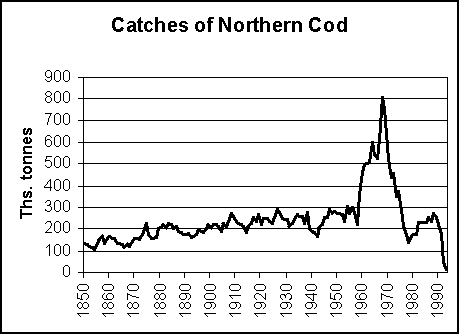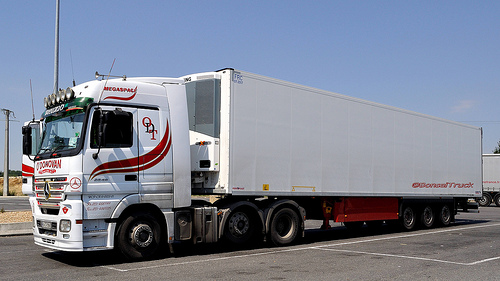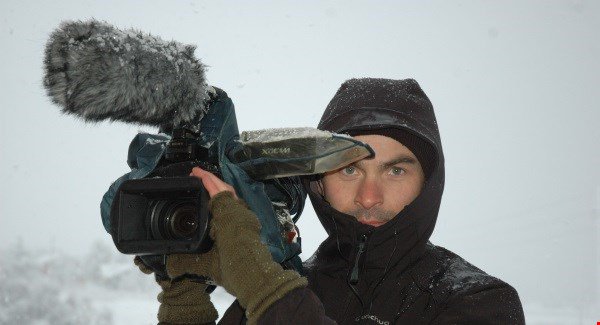Jim Clohessy watched something other than fishing on TV! Here's his verdict on a show that evokes reaction from every viewer .... Atlantic


Atlantic * A documentary * Review & Comment
After watching the much talked about documentary “Atlantic” I felt it made for strange viewing. As an interested stakeholder in things marine the documentary evoked many reactions from me from disbelief to resignation to laughter to rage to frustration to pride and sadness. it was a bit of a roller coaster ride really!
The production: It was a very well made programme. It was visually pleasing and certainly showed the power of the ocean. It moved well between the three basic strands of the programme – Ireland coastal, Newfoundland and Norway. There was some lovely camera work using all that is “modern” in camera work (other than drones). There was a smattering of underwater shots as well as plenty of “at sea” shots. Watching on a big TV in high definition and decent sound was a pleasure. I would think that a cinema screen would be even better. Considering that it was made on a shoestring budget; you would not think so at all.
We must appreciate that the subject matter is as vast as the Atlantic and is as complex too. There is always a danger that documentaries focus on just a few perceived problems. It can be difficult to explain over the short time of a documentary the complex parts of any problem, none more complex than the fishing industry.
What goes on off our west coast is an incredible situation. I’m sure that many of us has sat at a computer screen and tracked the massive amounts of fishing vessels working our coast. Atlantic did much to highlight this but did it get caught up in the emotion of the whole thing? Was the issue as portrayed only that there were foreign boats fishing in our waters? Did I hear any mention of the fish and fish stocks? The issue seemed to be who had right to plunder not the effect that the level of plunder was having. “Our boats are tied up while they are still fishing”. Our quota was used up. It shows how efficient the modern pelagic fleet is. We tend to forget that the biggest Supertrawler of them all was built for an Irish Company. The ex. Atlantic Dawn was granted Irish quota by our own government.

Why did they close the Grand Banks? – Overfishing!
What makes this strange is that the opening section of the show dealt with the situation in Newfoundland. The current situation portrayed is one of rebirth after a period of stagnation. The stagnation was caused by overfishing. Young people are now working in the oil industry that had boomed but was suffering in the aftermath of falling oil prices. Twenty one years after the closure of the Grand Banks the fishery is still not open. The narrator said that the cod stock were “recovering”. But the truth is the stocks have not recovered enough. It is clear that this is where stocks of mackerel, herring, scad and blue whiting are heading.
Atlantic worried about the future of coastal communities. These small half deckers were not fishing for scad and pelagic fish. These boats are fishing within our exclusive 12-mile limit where there is no foreign activity. Here we are cleaning out our own patch. What have we done to protect our resource in areas of water that we actually have control over? Would it be better to get our house in order before tackling the EU? Inshore stocks are in a bad way. The Irish sea is a shadow of its former self. Cod on the south and west coasts are threatened. Mullet are scarce. Bass had to be protected because they were commercially fished to extinction. It was not foreigners that did that, nor supertrawlers!

Some Irish hauliers benefit from the export of fish to Spain
There was mention of the level of fish that were exported from ports like Castletownbere. But it was maybe hidden in the context of pelagic boats. Would there be more Irish fishermen making a living from inshore whitefish rather than offshore pelagic?
The situation regarding oil and gas is a scandal of huge proportions. Atlantic in no small way intimated that the current sweet deals for exploitation was done by a minister that was originally found to be corrupt; that spent time in jail for tax evasion. We are still at an early stage in our oil exploitation compared to Norway. Do we still have the opportunity to change the way we deal with the oil companies? We certainly need informed debate. If the programme’s contention that the Corrib Field would yield little or no revenue to the state is correct then can our politicians justify the decisions made and change if necessary? Mistakes are made all the time. The speed of correcting the mistakes going forward is important, more important than dwelling in the past an getting caught up in the hype of lynch mobs, tribunals and enquiries.
It is easy to get caught up in the passion for work. Fishing is not the only enterprise where passionate people work. There are passionate people involved in all areas of industry. Fishing is a job just as farming is a job just as fixing trucks is a job as is baking bread or making tablets to cure illnesses is a job.
Fishing is a business just like any other business. Fishing and farming are different in business terms in that the businesses receive state aid in the form of subsidies. The purpose of a business is to make profit. All business have to abide to regulation specific to their industry. Business has to operate within the laws of the state. To think you are above the law or above regulation is a strange notion to me as I am involved with businesses that deal with regulation every day of the week. The people are passionate about what they do. The people are often frustrated by the controls that are put upon them. They work within the law. They work to the regulations that set for their industry. Their representative groups work to effect change to regulation where it is deemed necessary. For the most part they do not knowingly break the law.

The authorities felt that the chap from Arranmore was breaking the law and illegally fishing for salmon. The law states that you cannot commercially fish for salmon (in most cases for simplicity). He was operating illegally and faced prosecution as would any business operating outside the law. Forget “the poacher, the rogue, getting one over on the state”, illegal fishing is criminal activity, just like driving without insurance or shop lifting. Salmon fishermen received compensation from the state when salmon fishing was closed down. In simple terms: People were paid to stay away from salmon. Can you complain about a supertrawler breaking the law by high-grading and then give a wink and a nod to illegal fishing for salmon or bass?

Documentary maker – RISTEARD Ó DOMHNAILL
Atlantic is a superb programme. If it gets people talking about the marine environment it can only be a good thing. We should take it as one view of complex situation. Irish commercial fishing is a complex entity in any case. We have Irish boats operating under the Irish flag but owned by foreign companies. We have the case where quota for some species are not even reached some years. We have professional lobby groups telling us that the scientists are not correct and there is more fish there that they say. There are hugely successful fishing companies making lots of money and there are small businesses that are struggling to make a living. In the real world unprofitable business go out of business. Is that the future for small fishing enterprises? Will fishing be controlled by a few large companies? I think such a case was alluded to in Atlantic.
Will our politicians answer the questions asked by the documentary in terms of our oil and gas? Is there political will to correct the bad decisions made by politicians with ulterior motives?
“Taking back our waters” is not an option. We are members of the EU. We will be for the foreseeable future. This sort of rhetoric is of little use and will achieve little other than making noise.
Is the noise of seismic studies of more concern? Could such studies affect the already finely balanced fish stocks?
Our oil and gas are our own and decisions can be made to get the best deal for the country.
It would seem that we need upright politicians that are prepared to lead the people for the people and stand up to the EU in terms of easing the pressure on the Atlantic.
Even if you know nothing about things marine Atlantic is worth a watch. Even if you are living in another country Atlantic is worth a watch. Most countries have their own “Atlantic Story”
You can get more information here: …https://theatlanticstream.com/
The full documentary may be available to view here: http://www.rte.ie/player/ie/show/atlantic-30004408/10660197/


